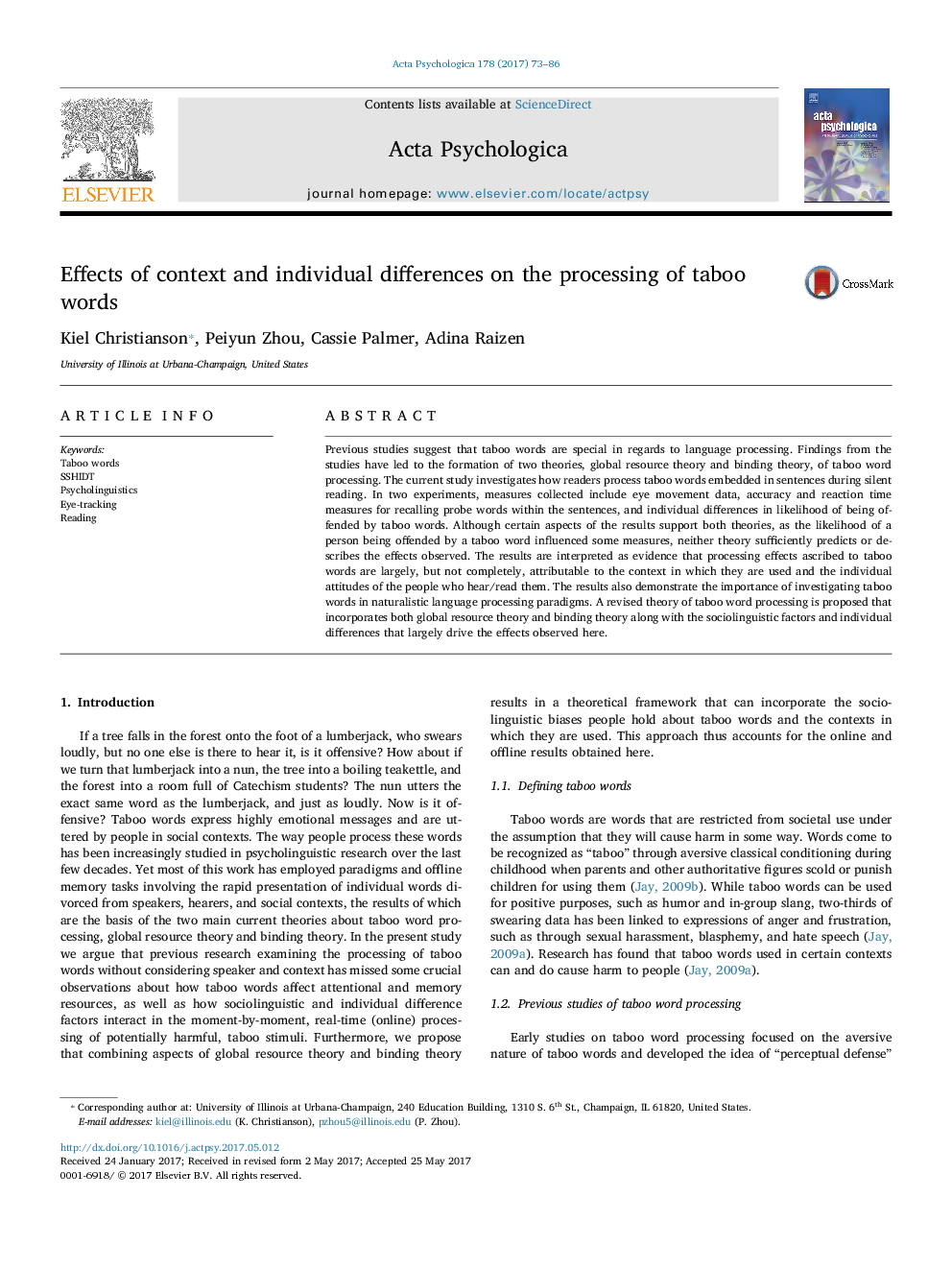ترجمه فارسی عنوان مقاله
تأثیرات متن و تفاوت های فردی در پردازش کلمات تابو
عنوان انگلیسی
Effects of context and individual differences on the processing of taboo words
| کد مقاله | سال انتشار | تعداد صفحات مقاله انگلیسی |
|---|---|---|
| 134182 | 2017 | 14 صفحه PDF |
منبع

Publisher : Elsevier - Science Direct (الزویر - ساینس دایرکت)
Journal : Acta Psychologica, Volume 178, July 2017, Pages 73-86
ترجمه چکیده
مطالعات قبلی نشان می دهد که کلمات تابو در مورد پردازش زبان خاص است. یافته های مطالعات منجر به تشکیل دو نظریه، نظریه منابع جهانی و تئوری اتصال، پردازش کلمات تابو شده است. مطالعه حاضر به بررسی نحوه چگونگی خواندن کلمات تابو در جملات در خلال خواندن خاموش می پردازد. در دو آزمایش، جمع آوری داده ها شامل داده های حرکات چشم، اندازه گیری دقت و زمان واکنش برای فراخوانی کلمات پروب در جملات و تفاوت های فردی در احتمال پذیرش کلمات با کلمات تابو است. گرچه جنبه های خاصی از نتایج، از هر دو نظریه حمایت می کند؛ زیرا احتمال دارد فردی که توسط یک واژه تابو مورد تجاوز قرار گرفته است، برخی از اقدامات را تحت تاثیر قرار دهد، نه نظریه به اندازه ای اثرات مشاهده شده را توصیف یا توصیف می کند. نتایج به عنوان شواهدی مبنی بر این که اثرات پردازش به کلمات تابو به طور گسترده، اما نه به طور کامل، مربوط به زمینه ای است که در آن استفاده می شود و نگرش فردی افرادی که آنها را می شنوند / خوانده می شود، تفسیر می شوند. نتایج همچنین نشان می دهد اهمیت بررسی کلمات تابو در پارادایم های پردازش زبان طبیعی است. نظریه تجدید نظر در پردازش کلمه تابو پیشنهاد شده است که هر دو تئوری منابع جهانی و تئوری اتصال را همراه با عوامل اجتماعی-زیست شناختی و تفاوت های فردی که عمدتا اثرات مشاهده شده را در اختیار دارد.

